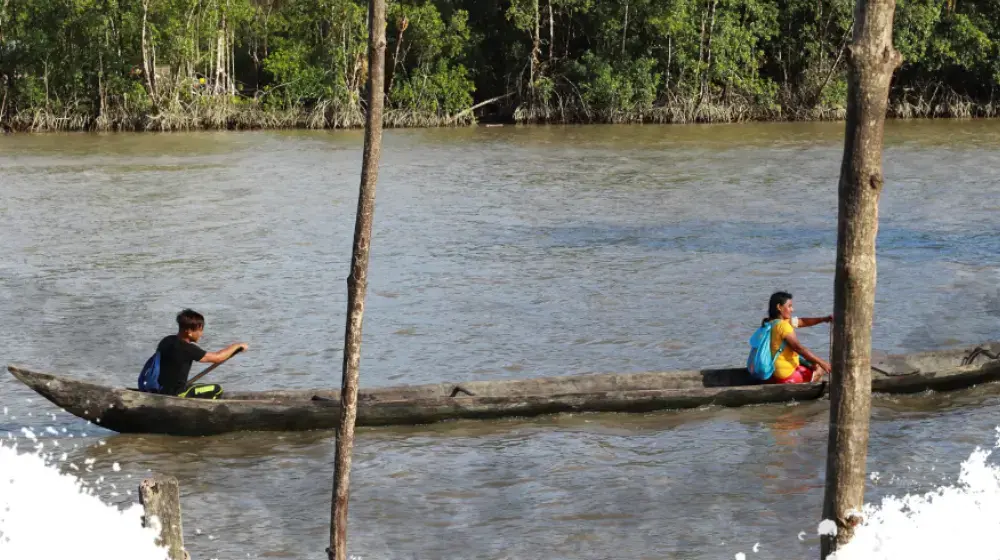UNFPA in Trinidad and Tobago has been collaborating with various partners to enhance the country’s capacity to address Sexual and Reproductive Health issues.
In August UNFPA, collaborated with Trinidad and Tobago’s National AIDS Coordinating Committee (NACC) to convene a workshop on gender-based violence in emergencies. This workshop brought together 27 participants including medical practitioners, social workers, case workers and peer navigators providing support to persons living with HIV (PLHIVs).
The training sought to Introduce participants to the foundational concepts of gender-based violence in emergencies; its causes, consequences as well as the underpinning theoretical frameworks, such as the survivor-centered approach. Participants also learnt about IASC guidelines and approaches in GBV prevention, response and risk mitigation within emergency situations such as pandemics and natural disasters. The objective was also to enhance the capacity of service providers to respond to the needs of persons within the LGBTI community, sex work community, and persons living with disabilities. Additionally, there were three modules of the training sessions dedicated to the enhancement of the capacity of participants as they transformed their services to respond to the impact of the Covid-19 pandemic.
Building on UNFPA’s commitment to centring the voices of the most margnizalied survivors of GBV, i.e. PLHIV, LGBTQI, persons living with disabilities, and sex workers, the content for this workshop was designed after a series of consultations with implementing partners providing direct support to LGBTQI sex workers. The feedback from these discussions was then incorporated into the content making it more context specific and relatable. A transgender activist in attendance said the workshop surpassed all expectations, and was not only a place for learning but also a safe space to be seen, heard and acknowledged.
UNFPA also convened training sessions for 50 hotline staff from Guyana and Trinidad and Tobago in November. In the context of the COVID-19, especially when movement restrictions prevent GBV survivors and those at risk from accessing in-person services, a crisis hotline with trained GBV staff is a life-saving entry point for care and support. The training sessions provided and opportunity for participants to practice soft skills improving engagement and the provision of immediate support, preceding more specialised care, explore techniques to promote safety and stabilize survivors of GBV when they are in a crisis phase and learn stress-reducing methods to allow callers to feel safer and more calm, to assess needs and concerns, and then refer them to more focused care.
In class discussions as well as post test results show that the overall objectives were met: (i) increased capacity of hotline operators in the provision on immediate psychological first aid (PFA), crisis support; safety planning and crisis management, as well as (ii) increased knowledge and use of GBV/SRH referral pathways.
Another virtual workshop was held between October and November to address clinical management of rape and intimate partner violence (CMR IPV). This workshop targeted approximately 25 medical practitioners from Trinidad and Tobago. It was focused on providing technical knowledge to assist in the strengthening of skills in the provision of support to survivors of rape and sexual abuse. The training introduced the WHO protocols on Clinical Management of Rape and Intimate Partner Violence Survivors: Developing protocols for use in humanitarian settings, Geneva, WHO, 2020. The training focused on the following thematic areas: Gender based violence (GBV) and its concepts; understanding the health consequences of GBV, why CMR and IPV care is a priority; health as an entry point to identifying IPV survivors; including conducting clinical enquiry for the identification of partner violence and carrying out steps to provide care for IPV survivors; providing first-line support (LIVES: Listening, inquiring about needs and concerns; validating, enhancing safety and social support) for survivors of rape and IPV; providing first-line support (LIVES: Listening, inquiring about needs and concerns, validating, enhancing safety and social support) for survivors of rape and IPV; special consideration for adolescents and children survivors; forensic evidence collection, presentation of medical evidence where applicable and storage of forensic samples Do’s and Don’ts of documentation; and an overview of mental health and psychosocial support (MHPSS) and its integration in CMR-IPV response.





